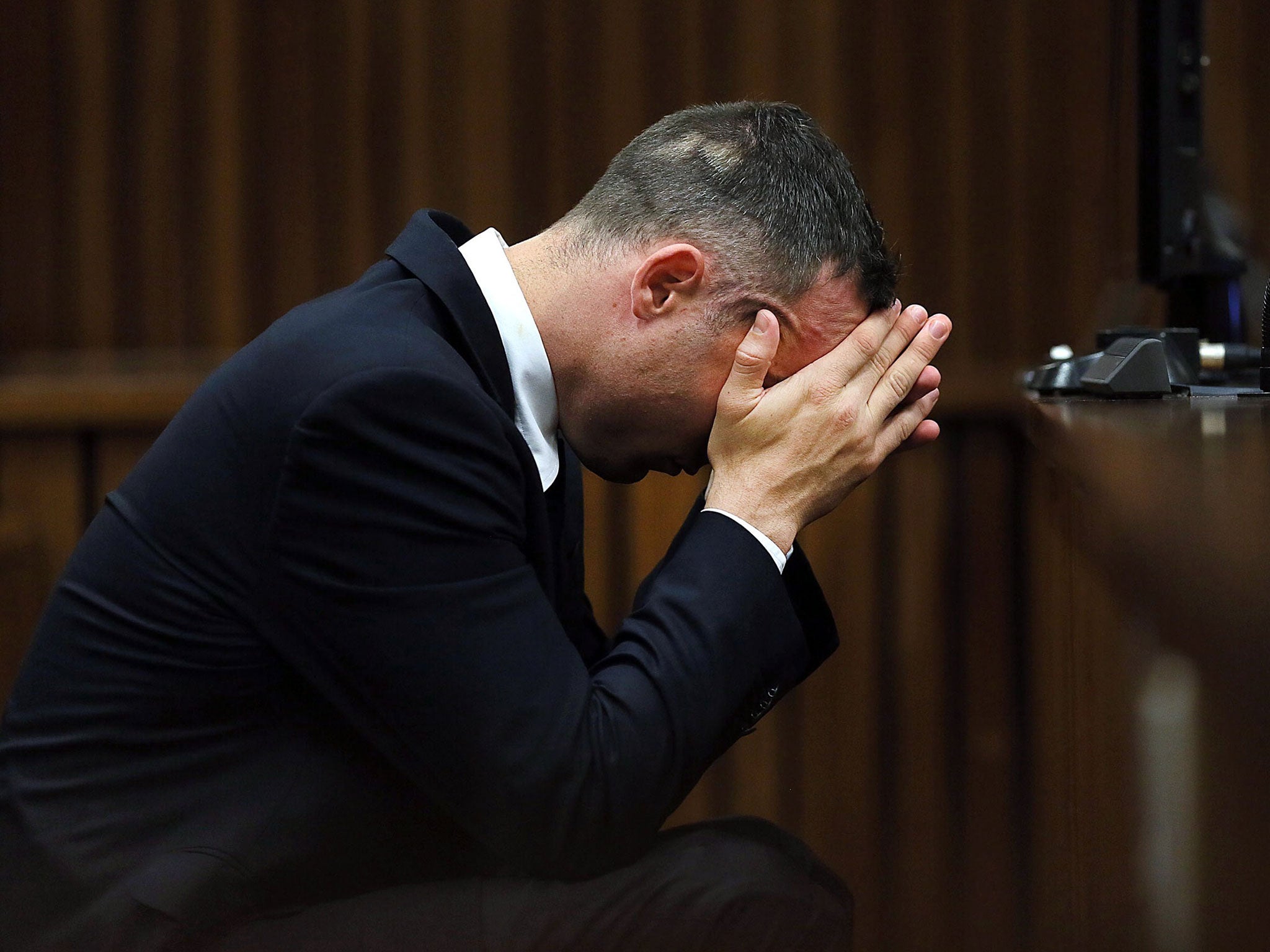Oscar Pistorius trial: Judge Masipa sets verdict date for 11 September
Defence and prosecution end their closing arguments as verdict date is announced

Your support helps us to tell the story
From reproductive rights to climate change to Big Tech, The Independent is on the ground when the story is developing. Whether it's investigating the financials of Elon Musk's pro-Trump PAC or producing our latest documentary, 'The A Word', which shines a light on the American women fighting for reproductive rights, we know how important it is to parse out the facts from the messaging.
At such a critical moment in US history, we need reporters on the ground. Your donation allows us to keep sending journalists to speak to both sides of the story.
The Independent is trusted by Americans across the entire political spectrum. And unlike many other quality news outlets, we choose not to lock Americans out of our reporting and analysis with paywalls. We believe quality journalism should be available to everyone, paid for by those who can afford it.
Your support makes all the difference.Oscar Pistorius will find out his fate on 11 September, bringing to an end a court case that has dominated headlines around the world since his arrest on Valentine's Day last year over the shooting of girlfriend Reeva Steenkamp.
Judge Thokozile Masipa confirmed the date after the prosecution and defence teams wrapped up their final arguments in the murder case against the athlete, which could see him spending the next 25 years in prison.
Soon after the announcement was made, the athlete tweeted: "Thank you to my loved ones and those that have been there for me, who have picked me up and helped me through everything."
In a final effort to prove Pistorius' innocence, defence counsel Barry Roux told the court the athlete had "built up" an exaggerated fear of crime and snapped the same way a victim of domestic violence would have done after years of abuse the night he shot Ms Steenkamp.
"You have the effect of the slow burn of insecurities over many years. You're an athlete. You're trained to react to a sound, and he stands there now with his finger ready to fire, and then..." Mr Roux told the court, slapping his hand on the desk to mimic the sound of what Pistorius claimed was an intruder.
Mr Roux also argued the athlete felt exposed because did not have his prosthetic legs on and fired responding to a "primal instinct" to protect himself, adding: "You're standing at that door. You're vulnerable. You're anxious. You're trained as an athlete to react. Take all those factors into account".
Throughout the trial, the defence has painted a picture of vulnerable man marked by tragedy after undergoing a double amputation as a child and losing his mother at a young age. Far from enjoying his status as South Africa's national hero, the defence argues Pistorius has struggled to deal with his disability in the privacy of his home.
Mr Roux also called into question the handling of the crime scene, which Pistorius claims was contaminated, and accused investigator Hilton Botha, who was first put in charge of the case, but was ultimately dropped from the investigation after being charged with attempted murder, of telling "blatant lies" to incriminate his client.
Yesterday, state prosecutor Gerrie Nel accused the athlete of being a "deceitful and appalling witness" and claimed he had consistently tailored his version of events. He also called for his testimony, in which the athlete insisted that he fired accidentally, departing from his original claim that he fired in self-defence to protect himself from an intruder, to be rejected by the court.
The prosecution's case is that an enraged Pistorius grabbed his gun and intentionally shot Ms Steenkamp through a locked toilet door with intention to kill, knowing full well she was inside, following a heated argument in the early hours of Valentine's Day last year. Mr Nel, known as the "pit bull" for his aggressive tactics in court, insisted that by arming himself, the athlete had shown it was a "premeditated" act.
Delivering his closing arguments, Mr Nel insisted that, even if the court accepts his testimony and takes into account his version of events, the athlete is still guilty of murder because he fired "without a cause....No one came out the door.... A reasonable man would not fire".
“Even in the event of the court accepting the accused version, he cannot escape a verdict of murder,” Mr Nel said. “If you fire four shots into a small cubicle with black talon ammunition you see the possibility that you will kill somebody.”
Pistorius is accused of murdering the model and law graduate in his upscale home in Pretoria on Valentine's Day last year. He also faces three separate charges, including two counts of discharging firearms in public and possession of illegal ammunition. He denies all charges and claims he shot Ms Steenkamp by mistake, thinking there was a burglar.
Pistorius faces a mandatory life sentence which usually carries a minimum of 25 years in jail if found guilty of premeditated murder, though mitigation could reduce it in this case. If found guilty of the lesser charge of culpable homicide, he could face 15 years or a non-custodial sentence. Pistorius is currently free on bail.
South Africa does not have trial by jury, meaning the athlete's fate will be decided by judge Masipa, with the help of two assessors.